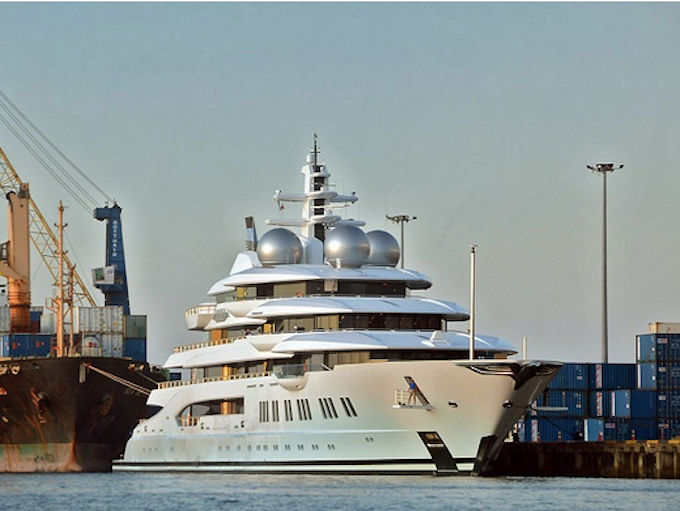The United States government can now remove the US$325 million luxury yacht Amadea, owned by Russian oligarch Suleiman Kerimov, currently docked in Fiji.
A Fiji High Court judge refused an application to stay his earlier ruling to allow the enforcement of a US Justice Department warrant to seize the luxury vessel which has been docked in the western port of Lautoka for almost a month.
Justice Deepthi Amaratunga told the court the Mutual Assistance Act which facilitated the enforcement of US seizure action limited his ability to stay the earlier order.
- LATEST: Fiji’s Court of Appeal restrains Amadea from leaving
- READ MORE: US govt seizes oligarch’s superyacht anchored in Fiji
- Fiji seizes Russian oligarch’s $300m yacht at US request
- Other Amadea super yacht reports
US officials based at the embassy in Fiji were expected to make an announcement with the Fiji police force later today explaining action taken overnight on Thursday and plans to sail the Amadea out of Fiji.
Fiji police boarded and seized the vessel yesterday and handed the property to US marshals and representatives from the Coast Guard, FBI and maritime authorities.
The Department of Justice announced today the vessel had been placed in the possession of the US Marshals’ Service.
Suleiman Kerimov, a close ally of Vladimir Putin, is not believed to be on board the vessel.
RNZ Pacific correspondent Lice Movono reported from Suva earlier today that Fijian police with US law enforcement, who had been in the country since the Amadea arrived in Fiji from Mexico, boarded the yacht yesterday.
“The US Treasury Department’s Office of Foreign Assets Control designated Kerimov as part of a group of Russian oligarchs who profit from the Russian government through corruption and its malign activity around the globe, including the occupation of Crimea,” a US Department of Justice statement said.
“According to court documents, Kerimov owned the Amadea after his designation. Additionally, Kerimov and those acting on his behalf and for his benefit caused US dollar transactions to be routed through US financial institutions for the support and maintenance of the Amadea.”
This article is republished under a community partnership agreement with RNZ.














































